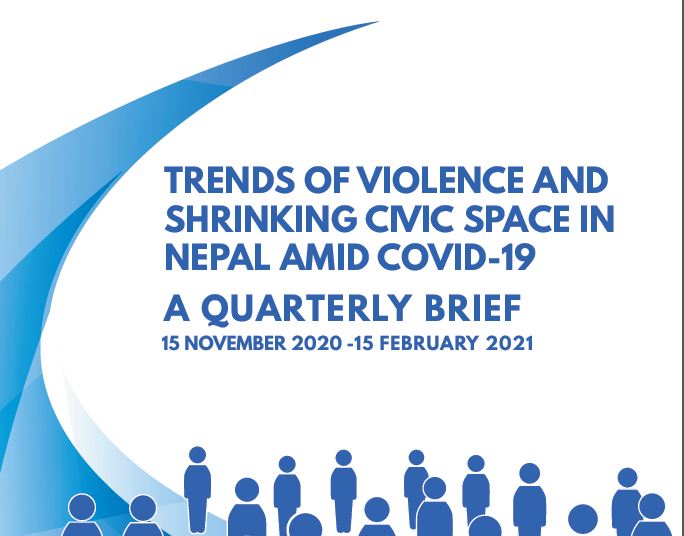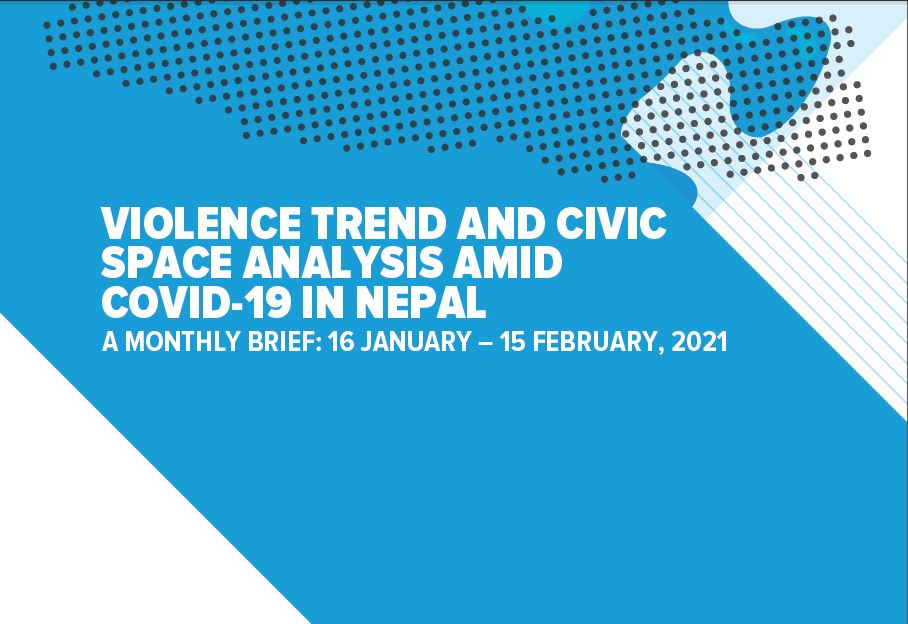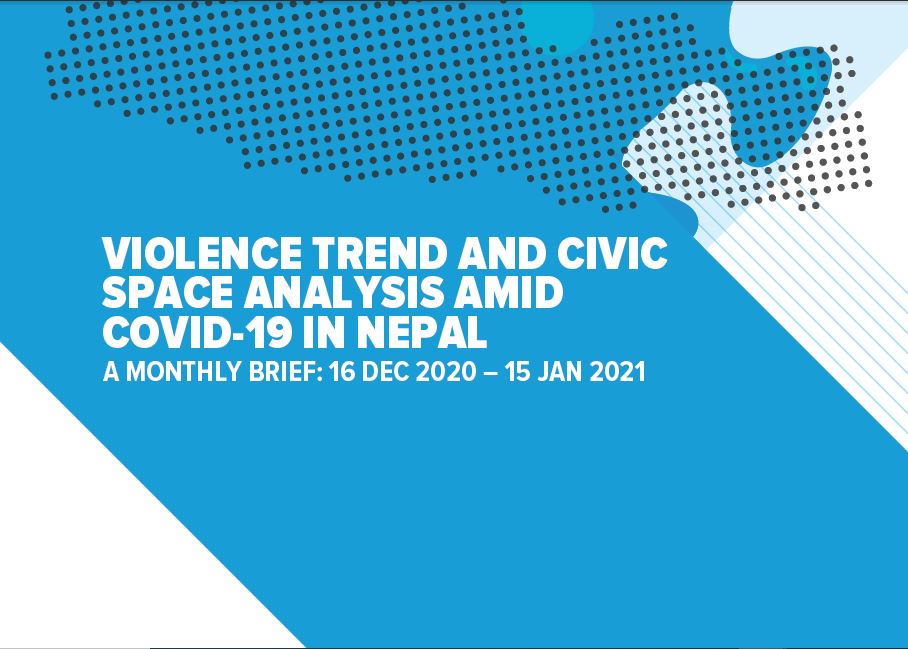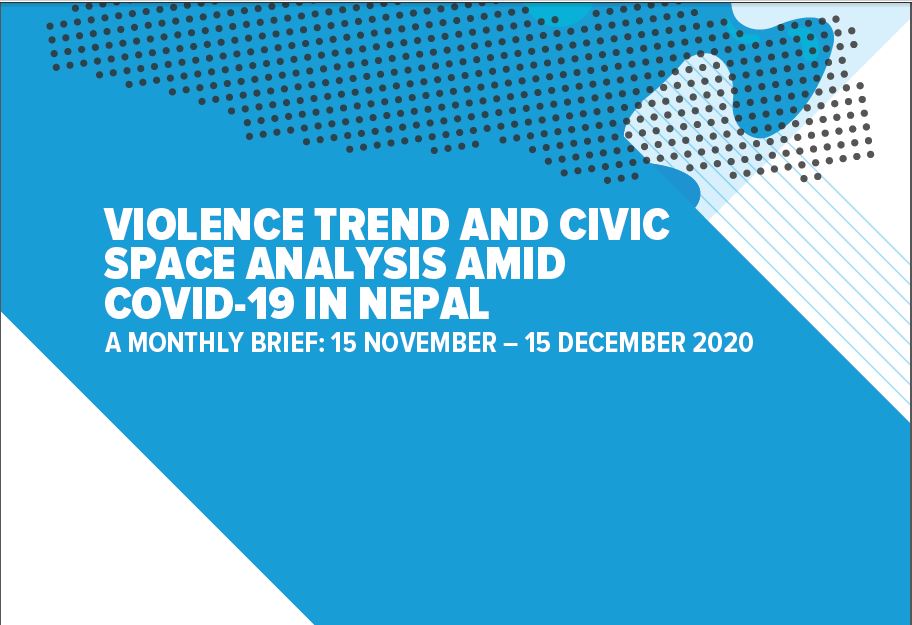Incident Reports
Laws are being designed to stifle press freedom in Nepal, a new report states
2019-05-05
New laws and policies that have been specifically designed to curtail freedom of expression in the country, along with the government’s repeated attempts to tarnish the image of the media, has led to the stifling of press freedom in Nepal, a new report says.
The annual report by the International Federation of Journalists (IFJ), in partnership with the Federation of Nepali Journalists (FNJ), was released on Friday, on the occasion of World Press Freedom Day.
The KP Sharma Oli-led government, which enjoys a two-third majority in Parliament, has largely ignored freedom of the press and drafted legislation “which include provisions that are contrary to global standards of press freedom, freedom of the expression and freedom of the internet,” notes the report, which has titled the Nepal chapter ‘the legal stranglehold’.
The report highlights several provisions within laws related to privacy and defamation, which many journalists say are detrimental to investigative reporting.
Under Sections 293 to 308 of the new Civil and Criminal Codes—both of which came into effect in 2018—activities such as listening to or recording conversations between two or more people without consent or authority; publicising private information of others found during professional works without consent or authority; receiving or sending unauthorised information or messages through an electronic medium and publishing them, have been criminalised. Individuals found guilty of violating these laws are subject to up to a three-year jail term.
“There is a problem with the provisions on privacy and defamation,” Shiva Gaunle, former FNJ president and current director of the Centre for Investigative Journalism (CIJ)-Nepal, states in the report. “Despite being good overall, the problem is that the Act does not differentiate between the private and public life of people. Journalists should have the right to report and write about the public life of people.”
Likewise, the report also criticises the Oli government’s draft of Information and Technology (IT) bill which, it states, “offers a peek into the willingness of the government to control freedom of expression.”
As per the draft bill, all social networking sites need to register in Nepal to be able to operate. It also deems any “improper” post on social media a legal offence, carrying a punishment of up to five years in jail and a fine of Rs 1.5 million.
“More than 80 journalists faced criminal cases and harassment due to one provision in the Electronic Transaction Act for their news,” Govinda Acharya, FNJ president, states in the report. “The new Act has dozens of such provisions that criminalise written or spoken expression, and journalists face imprisonment up to three years for merely writing news. This is against international standards and principles of press freedom; as well as the Constitution of Nepal.”
The Oli government has also been notorious for curtailing the dissemination of information.
In February, the government tabled the Federal Civil Service Bill with provisions restricting civil servants from criticising the government on media and social media. It also prohibits officials from providing information to the media.
“No civil employee shall, on his/her real or pseudo name or anonymity, publish any feature article, provide any news to the press, broadcast a speech through radio or television etc, make any public speech or publish any statement via broadcast or social media in such a manner as to be contrary to the policies of the Government of Nepal or undermine mutual relationship between the Government of Nepal and the people or the relationship with any foreign country,” a part of the bill reads.
Similarly, in November last year, deviating from past tradition, the government began withholding decisions made in meetings of the Council of Ministers from the public. Only after widespread backlash and outrage did Gokul Banskota, the government spokesperson and Minister for Communications and Information Technology, start holding a weekly press briefing at his office.
Since May 4, 2018, there have been 58 recorded instances of press freedom violations, according to the FNJ. A majority of them were attacks, threats, misconduct and arrests.
“Impunity and self-censorship are two issues that continue to impede free expression in the Nepali media community,” the report concludes.
National/Online Media
Related Reports
HRD Issues / Rautahat
Rautahat correspondent of Himalaya Television assaulted by crusher staff
August 22, 2023
HRD Issues / Saptari
Saptari journalist on continuous protest demanding protection of press freedom and action against attack on journalist
August 14, 2023
HRD Issues / Parbat
Arrest permission under cyber crime issued against journalist after raising issue of irregularity over social media
August 10, 2023
HRD Issues / Sunsari
Journalist issued threat in Sunsari over news report
Province 1, Sunsari, Barah
July 25, 2023
Related Trend Analysis
Analysis

THE NEPAL PEACE MONITOR ANNUAL REVIEW: 2020
October 25, 2021
Human Trafficking / LGBT+ Rights / GBV / Political / Children’s Rights / Senior Citizens’ Rights / HRD Issues / Human Rights / Interpersonal Violence / Governance / Covid-19 / Civic-Space / PwD





